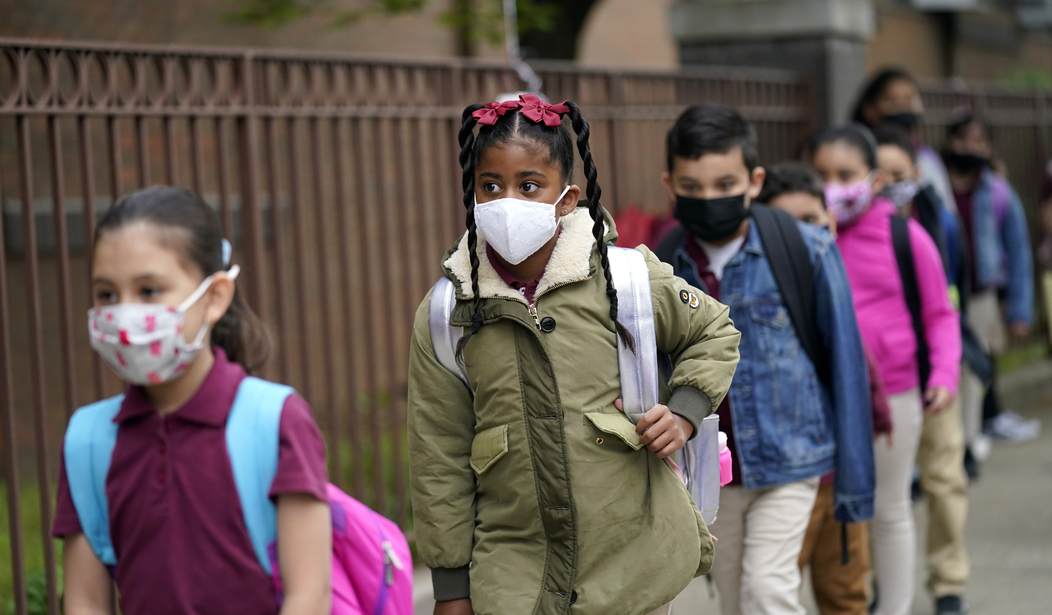During President Biden’s State of the Union address on March 1, he pointed out that children’s lives have “turned upside down” since the onset of the coronavirus pandemic. Furthermore, Biden noted that children were “struggling” prior to school closures, but the pandemic exacerbated those struggles. A new poll released this week shows what kind of impact Americans’ think the pandemic has made on children’s mental health.
A YouGov America poll released Monday found that nearly one-third of Americans believe the COVID-19 pandemic made a “very negative impact” on children’s mental health. The majority of respondents, 39 percent, said the pandemic had a “somewhat negative effect.” Thirteen percent said it had “neither a negative nor a positive effect” and 3 percent said it had both a “somewhat positive effect” and a “very positive effect.”
Respondents were also asked what effect they think the pandemic had on the mental health of parents. Thirty percent said it had a “very negative effect.” Forty-three percent said it had a “somewhat negative effect.” Twelve percent said it had “neither a negative nor a positive effect.” Four percent said it had a “somewhat positive effect” while 3 percent said it had a “very positive effect.”
Lastly, respondents answered whether they thought children’s mental health is better or worse than it was 20 years ago. Thirty-one percent said they think children’s mental health today is “much worse,” while a mere 6 percent said they think it is “much better.”
Last week, I reported how a recent University of Michigan Health C.S. Mott Children’s Hospital National Poll showed that more than a quarter of U.S. parents say their child has seen a mental health specialist with the majority doing so since the onset of the COVID-19 pandemic.
Recommended
In the poll findings, 27 percent of parents surveyed reported their adolescent has had a visit with a mental health specialist. Among those parents, 59 percent reported that the visit was within the past year. Fifty-five percent of parents reported that they decided on their own to have their child see a specialist, rather than a referral from school or another source.
“Even before the pandemic, mental health disorders in adolescents, such as depression and anxiety, were prevalent,” said Mott Poll co-director and Mott pediatrician Dr. Gary Freed in a news release.
“The pandemic caused significant stress and social disruption for kids that likely exacerbated these problems, as we’re seeing a growing number of young people face mental health concerns. This places a heavier burden on parents, health providers and other trusted adults in their lives to be aware of potential warning signs.”
“Regular check-ups are the best time for providers to discuss potential mental health concerns,” Freed added. “If parents feel their adolescent’s provider is not being proactive in raising these issues, they should bring it up with them.”

























